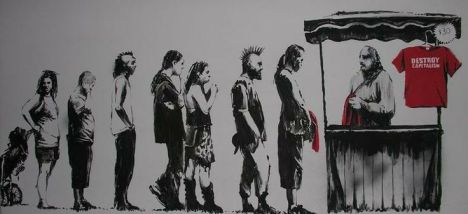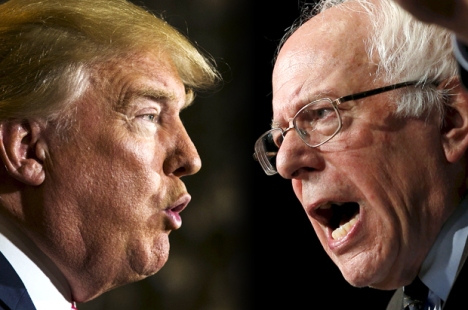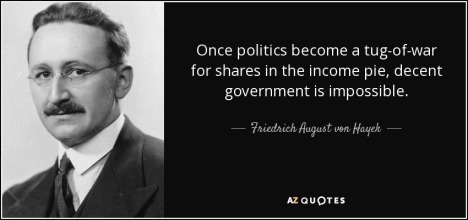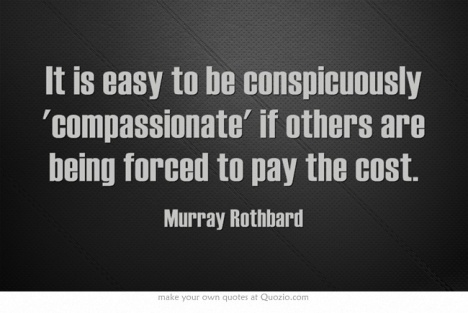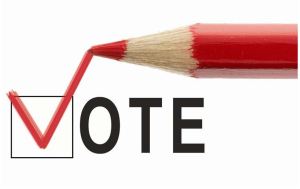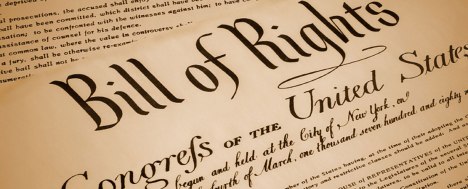
In the United States as well as in many countries around the world, there is a constant three-way war being waged between the intellectual forces of social conservatism, social progressivism, and civil libertarianism.
Social conservatives aim to preserve traditional values and beliefs and enshrine them in the law. Social progressives embrace newly evolved cultural developments which are incompatible with traditional values and beliefs, wishing to see these enshrined in the law. Civil libertarians, on the other hand, emphasize personal freedom over and against any authority structures or social mores.
Adherents of these groups don’t always go by these names, but you will see them appear in almost every conflict about cultural and social norms. In the 1960s, for instance, battles raged over race relations and segregationism. Social conservatives wanted to preserve and enforce the tradition of keeping races largely separate. Civil libertarians argued that individuals should have the right to associate with each other however they want and shouldn’t be restricted by things according to their race. Social progressives took a similar position as civil libertarians, emphasizing the increasingly popular cultural value of equality.
More recently, these three forces have been fighting over the meaning of marriage. Social conservatives defend the longstanding tradition of marriage only involving one man and one woman. Social progressives find this definition outdated and restrictive, arguing that marriage should be extended to two individuals of the same gender as well. Civil libertarians assert that there is no universal definition of marriage which can be limited to some individuals and not others; rather, any two consenting adults should to be allowed to marry.
What about drugs and other potentially harmful substances? Social conservatives hold on to the time when the stigma of drug use was stronger, maintaining that addictive substances should not be allowed. Social progressives have mixed opinions about this subject simply because most Americans have mixed opinions about it: drugs are dangerous, but maybe not that dangerous. Civil libertarians disregard the potentially harmful nature of drugs and contend that individuals should have the freedom to decide for themselves whether to use them.
What about religion in the public square such as prayer in public schools, “under God” in the Pledge of Allegiance, or the Ten Commandments displayed in front of a courthouse? The responses should be predictable by now. Social conservatives defend the traditionally strong role of religion in culture and government, often stating that “separation of church and state” is meant to keep the state out of the church but not necessarily the church out of the state. Social progressives argue that “separation of church and state” means that the state should be indifferent and impartial to all forms of religion, which means reversing the influence Christianity has traditionally held in the public square. Civil libertarians mostly agree with progressives in this case, but emphasize that individuals should have the freedom to practice or express their beliefs in any way that does not violate the freedoms of others (such as extra-curricular Bible studies in public schools, wearing hijabs in public, or proselytizing on college campuses).
Where should Christians stand in this cultural war?
If you were to ask a committed Christian citizen of Rome in the mid 300s AD, his or her answer would likely be different than a committed Christian in America today. In the 300s AD, the Roman Empire and its culture was thoroughly polytheist, though the Christian Church was a growing subculture. Many Christians, including Saint Augustine, would be considered social progressives by today’s standards; they opposed the pagan polytheist traditions of Roman society in favor of Christian values, which had already begun to influence the broader culture.
Today, most committed American Christians believe our society and culture began as predominantly Christian in its character and thinking but has since devolved into something very opposed to Christianity. Thus, in essence, they want to preserve traditional values from the progressives who wish to neuter (as they see it) Christianity’s influence in the public square. Naturally, then, most committed American Christians identify with social conservatism.
This identity, however, has led to decades of continuous conflict with non-Christian groups in society. These non-Christian groups think that Christians are trying to force their subculture onto them. Many Christians, in turn, think that these non-Christian groups are trying to do the same. It is an endless tug-of-war match for dominance over the trajectory of cultural transformation.
Is this the way Christians are supposed to bear witness to the good news of Jesus Christ in a dark and fallen world? Does the Bible give any guidance for this conflict of culture and politics?
I believe it does, and it starts with the difference between morality and legality.
The Bible’s Guidance on the Culture War
(1) There is a difference between morality and legality. And that difference is crucial.
Some time into Christ’s ministry, a group of scribes and Pharisees, “holding to the tradition of the elders” which had been enshrined in their law, noticed Jesus’s disciples eating with ceremonially unclean hands. “Why do your disciples not walk according to the tradition of the elders, but eat with defiled hands?” they asked him. But in Christ’s teaching, he distinguishes between the traditional laws and morality: “There is nothing outside a person that by going into him can defile him, but the things that come out of him are what defile him” (Mark 7:15).
In other words, morality starts in a person’s heart and mind and then leads to actions. Actions alone do not make a person moral or immoral. Jesus makes this distinction again numerous times in the Sermon on the Mount, for instance: It is immoral both to murder and to be angrily vindictive at someone, yet it is not unlawful merely to be angry (Matt 5:21-26). Likewise, it is unlawful to commit adultery but apparently not to lust. Yet it is immoral to lust, because that is the equivalent of committing adultery in one’s mind (Matt 5:27-28).
Paul makes a similar distinction. “All things are lawful,” he writes in 1 Corinthians 10:23, “but not all things are profitable. All things are lawful, but not all things edify.”
Paul here distinguishes between that which is “legal” for the Christian and that which is profitable or edifying (moral). They are not the same. Not everything that is “legal” is morally good or praiseworthy, and not everything that is immoral is unlawful.
A modern example in America would be divorce. Christians would affirm Christ’s teaching that marriage is meant to be permanent and divorce allowed only in cases of adultery, but American law does not require proof of unfaithfulness to obtain a divorce. At one point in our nation’s history, the initiator of the divorce did have to provide some proof of the other’s unfaithfulness, but not anymore.
The Bible seems clear about divorce, so should Christians advocate for divorce laws which reflect our biblical values?
(2) The God-Given role of the State is to bear the sword for the peace and justice of society as a whole.
Romans 13 implicitly defines the state as the authoritative organization in a given territory or territories with the role of using “the sword” to prevent evil, punish evildoers, and facilitate good conduct.
What does it mean to bear the sword? It does not necessarily mean violence, because the governing authorities can accomplish things without having to use violence. Then again, it does imply something about violence—that it is available to be used if necessary. “The sword” can refer to violent force, such as a soldier fighting in war or a policeman subduing a criminal, but it can also refer to the government’s unique ability to compel its citizens to do what it commands.
“The sword,” then, means the use or threat of force in order to carry something out. The governing authorities cannot rely on persuasion or argumentation to carry out their purposes. They have to rely on force—i.e. coercion or compulsion.
If a policeman pulls me over for speeding, he does not try to persuade me not to drive so fast. He punishes me by forcing me to pay a fine (or else face progressively more severe punishments). This is an example of “the sword” of government.
Likewise, if I were send no money to the IRS this year and next year and the year after that, it is certain that I would eventually face a harsh punishment for choosing not to comply with government’s demands. They would force me to pay or else bear a punishment even more severe than sending them money. This is another example of “the sword.”
Furthermore, at one point in this country and many other Western countries, “sodomy” (gay intercourse) was illegal. The government would punish those who were proven to have engaged in such conduct. This, too, is an example of “the sword.”
The Bible seems clear about homosexuality (or at least the act of homosexual intercourse), so should Christians advocate for sodomy laws which reflect this biblical truth?
(3) Jesus reveals the attitude that the church should have toward the government.
During the time of Jesus, Judea was ruled by the Romans, but a large number of Jews wanted to expel the Romans and rule themselves according to their traditional laws. When religious leaders tried to trap Jesus into choosing either the side of the rebellious, anti-Roman zealots or the occupying Romans, Jesus told them to bring him a Roman coin (which were widely used throughout Roman territories).
Naturally, it had Caesar’s face on it. So Jesus said, “Give back to Caesar what is Caesar’s, and give to God what is God’s” (Mark 12:17).
There has been much debate about the meaning of this cryptic saying, but there is one thing Jesus is likely implying here: giving to the government what it requires and giving to God what He requires are not necessarily incompatible. One can both give to Caesar that which Caesar rightfully asks for and also give to God that which God rightfully asks for.
Notice the extremely important effect this answer has on Christ’s audience, which was no doubt made up of both anti-Roman zealots and pro-Roman loyalists. Everyone marveled at it. Neither side was upset. It didn’t make anyone want to revolt. Jesus threaded the needle between both sides of the cultural and political struggle of His day. He did not advocate either side’s dominance of the other.
Some other passages from the New Testament shed light on Jesus’s saying.
While the state is God’s servant, His tool, for avenging evil (Rom. 13:4), we Christians are tasked with living peaceably with all and never avenging (Rom. 12:18-19). Thus God has established different but compatible roles for the Church and the State.
When non-Christians see the Church, they ought to see peacemakers (Matt 5:9) who respectfully fulfill their obligations to the governing authorities (Rom 13:1-7) so long as those obligations do not require them to disobey godly ethics (Acts 5:29).
Peter echoes Paul’s teaching from Romans in 1 Peter 2:13-17: “Be subject for the Lord’s sake to every human institution, whether it be to the emperor as supreme, or to governors as sent by him to punish those who do evil and to praise those who do good. For this is the will of God, that by doing good you should put to silence the ignorance of foolish people. … Honor everyone. Love the brotherhood. Fear God. Honor the emperor.”
The “ignorance of foolish people” referenced here is the common charge the early church faced by the Romans as being anti-Roman rebels. Many early Christians refused to say the words, “Caesar is Lord,” saying instead that “Jesus is Lord.” Thus they faced many accusations as being instigators of unruly sentiments. Thus, after hundreds of years of dealing with Jewish zealots, the Romans were especially wary about these Christians. Peter is not instructing Christians to cozy up to an unmistakably wicked and overbearing government (the Roman Empire) in order to gain more political influence. He is commanding Christians to live in submission to the government so that they can go about their mission of spreading the gospel in peace.
Paul states this plainly in 1 Timothy 2:1-2: “First of all, then, I urge that supplications, prayers, intercessions, and thanksgivings be made for all people, for kings and all who are in high positions, that we may lead a peaceful and quiet life, godly and dignified in every way.” The purpose for our submission to government is to “live peaceably with all.”
This is also why Paul urges Thessalonian believers to “aspire to live quietly, and to mind your own affairs, and to work with your own hands, as we instructed you, so that you may walk properly before outsiders and be dependent on no one” (1 Thess 4:11-12).
Returning to the saying of Christ to “give to Caesar what is Caesar’s and to God what is God’s,” we can safely interpret the meaning of this teaching as this: Pay taxes and do what you must to live peaceably in society in order to carry out the work of the gospel. Do not stir up trouble or do anything which would hinder your ability to live peaceably and spread the gospel.
Such teaching harkens back to the wisdom of Solomon in Proverbs 17:14: “Starting a quarrel is like breaching a dam; so drop the matter before the dispute breaks out.”
This leads naturally to the next point.
(4) The church’s mission cannot be accomplished through force.
The church can only and should only seek to bring others into the Kingdom of God and to reform people’s lives and behavior through evangelism, persuasion, prayer, and relationships, none of which are compatible with force or coercion. Can a person enter the Kingdom through pressure, compulsion, manipulation, or the threat of force? No. Faith and obedience to God must come from the heart.
Good works not done from the heart are of little to no value to God (see Isaiah 64:6).
“Thanks be to God,” says Paul in Romans 6:17, “that you who were once slaves of sin have become obedient from the heart to the standard of teaching to which you were committed.”
Likewise, the inner workings of the church should be entirely voluntary and heartfelt. For instance, about donating one’s money, Paul says, “Each one must give as he has decided in his heart, not reluctantly or under compulsion, for God loves a cheerful giver” (2 Cor. 9:7).
Similarly, when Onesimus, slave of Philemon, found himself in the company of Paul, Paul wrote to Philemon entreating him to free Onesimus. Paul acknowledges that “though I am bold enough in Christ to command you to do what is required, yet for love’s sake I prefer to appeal to you” (Philemon 8-9). “I would have been glad to keep him with me, in order that he might serve me on your behalf during my imprisonment for the gospel, but I preferred to do nothing without your consent in order that your goodness might not be by compulsion but of your own accord” (Philemon 13-14).
The church’s tasks, both in drawing in new believers and in dealing with fellow believers, should be carried out with as much voluntarism and wholeheartedness as possible. Indeed, our mission cannot be carried out otherwise.
(5) The church should not try to influence behavior before the heart has been changed.
This point is a natural extension of the previous point. Since the church should be engaging both unbelievers and each other with as much non-compulsion as possible, naturally we should not seek to coerce those outside the church. If the human heart cannot be forced into submission to God, and morality comes from the heart, then it is foolish to hold those who have not voluntarily and wholeheartedly submitted to God to the same moral standard as those who have.
Trying to compel a certain behavior without changing a person’s heart is akin to meddling in their affairs without being invited, and the Bible contains some clear teachings about meddling.
While the church should expect to suffer in this life so as to spread the gospel, Peter tells believers: “Let none of you suffer as a murderer or a thief or an evildoer or as a meddler.”
“It is an honor for a man to cease from strife; but every fool will be meddling” (Prov. 20:3).
Likewise, “A person who is passing by and meddles in a quarrel that’s not his is like one who grabs a dog by the ears” (Proverbs 26:17).
It is not the role of the church to enforce a certain behavior or even to judge non-believers. “What business is it of mine to judge those outside the church?” Paul asks in 1 Corinthians 5:12-13. “Are you not to judge those inside? But those who are outside, God judges.”
Even Jesus resisted the opportunity to assert himself into others’ personal affairs: “Then someone in the crowd told him, ‘Teacher, tell my brother to divide my family inheritance with me.’ But he said to him, ‘Man, who made me a judge or arbitrator over you?'” (Luke 12:13-14)
(6) The goal of the church should be peace with non-believers, not political or cultural dominance over them.
The final point again flows naturally from the others. It is a simple truth, but much more difficult than it sounds.
Our goal as the church should not be to continue this tug-of-war battle in society over whether traditional Christianity or secular humanism has more political or cultural influence. It is worth taking a sidetrack here to note the pragmatism of this way of thinking: The American church has largely fought on the side of social conservatism since the time of slavery in the 1800s, and it has lost almost every battle.
It lost the battle over slavery, which was defended overwhelmingly by biblical arguments in the South and fought by secular arguments in the North. It lost the battle over evolution in public schools in the early 1900s. It lost the battle over the traditional role of women and suffrage in the 20s, 30s, and 40s. It lost the battle over segregation in the 50s and 60s. It lost against the sexual revolution of the 60s and 70s. It has steadily lost battle after battle over religious icons in publicly owned spaces. In 2015, it lost the final battle over gay marriage through a Supreme Court decision which legalized it in all 50 states.
From a strictly pragmatic standpoint, to side with social conservatism in America is to bet on a losing team.
Look to Proverbs 25:8 for wisdom in this regard: “Do not bring hastily to court, for what will you do in the end if your neighbor puts you to shame?” To put this in a modern context, we can say, “Do not hastily seek to overcome the secular humanists through the courts or the law, for what will you do in the end if the secular humanists overcome you?”
Another pragmatic reason not to continue this tug-of-war match in politics and culture is that it has likely damaged the church’s image and embittered some people to our message. It becomes clear why Paul and Peter took such pains to communicate that Christians should live peaceably with all and not meddle in others’ affairs: because doing otherwise starts conflicts which will harden outsiders to the good news of Jesus Christ. It is more important for non-believers to hear that Jesus Christ loves them and gave his life to save them than that their lifestyle is incompatible with Christian values.
But the main reason we as the American church should discontinue our part in the culture war is the line of reasoning laid out in the previous points.
There is a difference between morality and legality. We as the church can and should continue to stand for our convictions about morality. We should continue to affirm that homosexuality is not God’s intention for marriage, that extramarital sexuality is contrary to God’s design, that divorce should be avoided if at all possible, that drugs are harmful and should be avoided, that women and men are equal but have separate roles in the family and the church, and so on. We are not to retreat from society and become irrelevant or live in communes. But, at the same time as we are affirming Christian virtues openly and publicly, we are also not attempting to enshrine our values and beliefs in the law.
Why? Because the law is enforced by the sword of government, and Christians are called to refrain from using the sword. Government can only accomplish its purposes by using or threatening the use of force. The church, on the other hand, can only accomplish its purposes through wholehearted compliance and voluntarism.
Rather than judging those outside the church or meddling in their personal affairs or lifestyles, thus creating conflict, we ought to live as peaceably as possible with them and try to lead them non-coercively to an acceptance of Christ. Attempting to influence behavior before acceptance of Christ is a futile endeavor, especially if done through government force.
(7) The church should seek the good of the society as a whole.
Many well-meaning Christian leaders such as Dell Tackett and James Dobson of Focus on the Family harken back to the days in American history when the majority of the population were sincere Christians and Christianity dominated culture. They want to spark a religious revival which will take us back to that time. Many of these Christian social conservatives acknowledge that American culture will only change if the population genuinely and wholeheartedly turns to God, yet they continue to support laws which will enforce good conduct, regardless of a change of heart.
This approach, as I hope you can see, is misguided. It is not the way the Church is supposed to carry out its mission on Earth.
In a society and culture that is not predominantly Christian, our goal should be to live peaceably with non-believers and to seek the good of everyone.
As God told the Israelites in exile, speaking through Jeremiah (29:7): “Seek the welfare of the city where I have sent you into exile, and pray to the Lord on its behalf, for in its welfare you will find your welfare.”
Filed under: Politics & Economics | Leave a comment »


